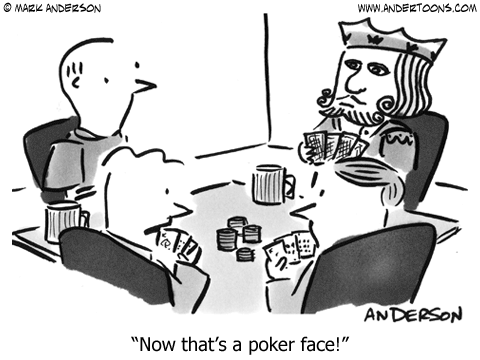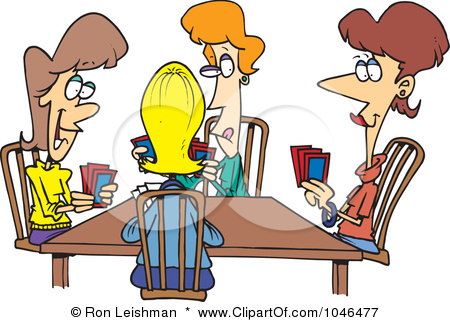The Milwaukee Sentinel – 22 Feb 1959
After they have solved the Berlin question and relieved the world from the threat of nuclear warfare, the social scientists may wish to turn to the problem of bridge. At least, I hope they do. Playing cards is an excellent social catalyst, as an excuse for going someplace or having someone in. But a problem rises because there is a male way of playing cards and a female way of playing cards.
In an exclusively male situation, the game is more than likely going to be poker, gin or sheepshead, while amongst the ladies it is usually bridge. The difference in the game is superficial, however. The big difference —and the big source of difficulty—is the difference in milieu, or atmosphere, or climate, or well, let’s call a spade a spade: The big difference is in the TALK.
On the sporadic occasions when I have been involved in a poker party, either here or somewhere else, The Queen’s inquiries afterwards have always centered not on who won but who said what. I always have difficulty with this. Usually, I can’t recall that anyone said anything memorable and I think she finds this slightly incredible. She may even think I am editing the record and suppressing the evidence. I can’t convince her that 90% of the sound at a male poker party consists of chips clicking, heavy breathing and various arrangements of these five basic phrases: «I’ll take three … Up five … Call … Damn! … How’s the beer holding up?»
IT’S EADY TO understand her incredulity, though. When she comes home from one of HER card parties, she has not only played 18 hands of bridge but has been completely updated on the medical, educational and sociological developments in eight to 12 other households.
This leaves ME incredulous. I don’t understand how the girls manage to exchange all that data and still get in 18 hands before daybreak. But the real bind comes on when you mix these two styles, as when one couple drops in on another couple for a few hands. Chivalry—to say nothing of sanity — requires that they play bridge rather than poker. This is fine with me. I like bridge. My bridge, however, is just past the primitive stage. It is impulsive, mystical, in-stinctive. I can count my points like a wizard, but I’m a little vague about what they entitle me to do. I experience vertigo when my partner starts Blackwooding me. In other words, I have to concentrate like mad.
So George and I are playing Mary and The Queen and Mary deals and bids a diamond and I pass and The Queen says: «Didn’t you have the piano over there the last time we were here?» This is my signal to switch on the automatic pilot. While the discussion goes on, I repeat over and over to myself: «Mary bid a diamond . . . passed … Mary bid a diamond … I passed … Mary bid …» You can stand it just so long. I have to abandon this exercise and watch for a chance to murmur, «A diamond and a pass to you . . .» without sounding churlish.
This is nothing compared to the tortures during the play of the hand. Even I, primitive that I am, recognize that success in bridge depends on keeping track of what has been played in each of the four suits at all times. For me, this is the same as keeping track of a chicken farm in a tornado.
So, after taking a trick with the ace of clubs, The Queen says: «How did that tuna-noodle recipe work out?»
Awash in white sauce, my automatic pilot chants grimly: The king of clubs is good , The king of clubs is good The king …» The discouraging part is that I am clutching no desperately to this little nugget of information that I miss the obvious indication that The Queen’s ace was a singleton.
My own conclusion is that there is a fundamental, functional, maybe even biological difference here. Women, by and large, can play cards and talk at the same time, while men, by and large, cannot. If this is so, then the only fair thing is to change the rules. It ought to be fair for the fellows to pass their hands back and forth under the table while the girls are chatting.


